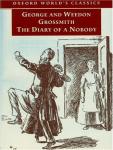
The Diary of a Nobody
by George Grossmith
The Diary of a Nobody is an English comic novel written by George Grossmith and his brother Weedon Grossmith, with illustrations by Weedon. The book first appeared in Punch magazine in 1888 – 89, and was first printed in book form in 1892. It is considered a classic work of humour and has never been out of print.
In The Diary of a Nobody the Grossmiths create an accurate, if amusing, record of the manners, customs and experiences of lower-middle-class, suburban Londoners of the late Victorian era. The diary is the fictitious record of fifteen months in the life of Mr. Charles Pooter, a middle-aged city clerk of lower middle-class status but significant social aspirations, living in the fictional "Brickfield Terrace" in Upper Holloway, which was then a typical suburb of the impecuniously respectable kind. Other characters include his wife Carrie (Caroline), his son Lupin, his friends Mr. Cummings and Mr. Gowing, and Lupin's unsuitable fiancée, Daisy Mutlar. The humour derives from Pooter's unconscious gaffes and self-importance, as well as the snubs he receives from those he considers socially inferior, such as tradesmen.
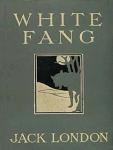
White Fang
by Jack London
White Fang is the titular character and a novel by American author Jack London. First serialized in Outing magazine, it was published in 1906. The story takes place in Yukon Territory, Canada, during the Klondike Gold Rush at the end of the 19th-century, and details a wild wolfdog's journey to domestication. White Fang is a companion novel (and a thematic mirror) to London's best-known work, The Call of the Wild, which is about a kidnapped, domesticated dog embracing his wild ancestry to survive and thrive in the wild.
Much of the novel is written from the view-point of his canine character, enabling London to explore how animals view their world and how they view humans. White Fang examines the violent world of wild animals and the equally violent world of humans. The book also explores complex themes including morality and redemption.
The story begins before the three-quarters wolf-dog hybrid is born, with two men and their sled dog team on a journey to deliver a coffin to a remote town named Fort McGurry in the higher area of the Yukon Territory, Canada. The men, Bill and Henry, are stalked by a large pack of starving wolves over the course of several days. Finally, after all of their dogs and Bill have been eaten, four more teams find Henry trying to escape from the wolves; the wolf pack scatters when they hear the large group of people coming. The story then follows the pack, which has been robbed of its last prey. When the pack finally manages to bring down a moose, the famine is ended; they eventually split up, and the story now follows a she-wolf and her mate, One Eye. The she-wolf gives birth to a litter of five cubs by the Mackenzie River, and all but one die from hunger. One Eye is killed by a lynx while trying to rob its den for food for the she-wolf and her cub; his mate later discovers his remains near the lynx's den. The surviving cub and the she-wolf are left to fend for themselves. Shortly after the she-wolf manages to successfully kill all the lynx kittens, prompting the lynx to track her down and a vicious fight breaks out. The she-wolf eventually kills the lynx but suffers severe injury, the lynx carcass is devoured over a period of seven days.
The cub comes across five Native Americans one day, and the she-wolf comes to his rescue. One man, Grey Beaver, recognizes the she-wolf as Kiche, his brother's wolfdog, who left during a famine. Grey Beaver's brother is dead, so he takes Kiche and her cub, christening the cub White Fang. White Fang has a harsh life in the Indian camp; the current puppy pack, seeing him as a wolf, immediately attack him. He is saved by the Indians, but the pups never accept him, and the leader Lip-lip singles him out for persecution. White Fang grows to become a savage, morose, solitary, and deadly fighter, "the enemy of his kind."
"In order to face the constant danger of hurt and even of destruction, his predatory and protective faculties were unduly developed. He became quicker of movement than the other dogs, swifter of foot, craftier, deadlier, more lithe, more lean with ironlike muscle and sinew, more enduring, more cruel, more ferocious, and more intelligent. He had to become all these things, else he would not have held his own nor survived the hostile environment in which he found himself."
When White Fang is five years old, he is taken to Fort Yukon so that Grey Beaver can trade with the gold-hunters. There, he is bought with several bottles of whiskey by a dog-fighter, Beauty Smith, who gets Grey Beaver addicted to alcohol. White Fang defeats all opponents, including several wolves and a lynx, until a bulldog is brought in to fight him. The bulldog manages to get a grip on the skin and fur of White Fang's neck, and slowly and surely begins to throttle him. White Fang nearly suffocates, but is rescued when a rich, young gold hunter, Weedon Scott, happens by and stops the fight.
Scott attempts to tame White Fang and after a long patient effort he succeeds. When Scott attempts to return to California alone, White Fang pursues him, and Scott decides to take the dog with him back home. In Sierra Vista, White Fang must adjust to the laws of the estate. At the end of the book, a murderous criminal, Jim Hall, tries to kill Weedon Scott's father, Judge Scott, for sentencing him to prison, not knowing that Hall was "railroaded". White Fang kills Hall and is nearly killed himself, but survives. As a result, the women of Scott's estate name him "The Blessed Wolf", and the story ends with White Fang relaxing in the sun with the puppies he had fathered with the sheep-dog Collie.
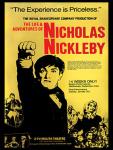
Nicholas Nickleby
by Charles Dickens
Nicholas Nickleby; or, The Life and Adventures of Nicholas Nickleby is a novel by Charles Dickens. Originally published as a serial from 1838 to 1839, it was Dickens' third novel.
Nicholas Nickleby's father dies unexpectedly after losing all of his money in a poor investment. Nicholas, his mother and his younger sister, Kate, are forced to give up their comfortable lifestyle in Devonshire and travel to London to seek the aid of their only relative, Nicholas's uncle Ralph Nickleby. Ralph, a cold and ruthless businessman, has no desire to help his destitute relations and hates Nicholas, who reminds him of his dead brother, on sight. He gets Nicholas a low-paying job as an assistant to Wackford Squeers, who runs the school Dotheboys Hall in Yorkshire. Nicholas is initially wary of Squeers (a very unpleasant man with one eye) because he is gruff and violent towards his young charges, but he tries to quell his suspicions. As Nicholas boards the stagecoach for Greta Bridge, he is handed a letter by Ralph's clerk, Newman Noggs. A once-wealthy businessman, Noggs lost his fortune, became a drunk and had no other recourse but to seek employment with Ralph, whom he loathes. The letter expresses concern for the innocent young man and offers assistance if Nicholas ever requires it. Once he arrives in Yorkshire, Nicholas comes to realise that Squeers is running a scam: he takes in unwanted children (most of whom are illegitimate, crippled or deformed) for a high fee, and starves and mistreats his charges while using the money sent by their parents to pad his own pockets. Squeers and his monstrous wife whip and beat the children regularly while spoiling their own son rotten. While he is there, Nicholas befriends a simple boy named Smike, who is older than the other “students” and now acts as an unpaid servant. Nicholas attracts the attention of Fanny Squeers, his employer's plain and shrewish daughter, who deludes herself into thinking that Nicholas is in love with her. She attempts to disclose her affections during a game of cards, but Nicholas doesn't catch her meaning. Instead he ends up flirting with her friend Tilda Price, to the consternation of both Fanny and Tilda's friendly but crude-mannered fiancé John Browdie. After being accosted by Fanny again, Nicholas bluntly tells her he does not return her affections and wishes to be free of the horrible atmosphere of Dotheboys Hall, earning her enmity.
Fanny uses her new-found loathing of Nicholas to make life difficult for the only friend he has at the school: Smike, whom Squeers takes to beating more and more frequently. One day Smike runs away, but is caught and brought back to Dotheboys. Squeers begins to beat him, but Nicholas intervenes. Squeers strikes him across the face and Nicholas snaps, beating the schoolmaster violently. Quickly packing his belongings and leaving Dotheboys Hall, he meets John Browdie on the way. Browdie finds the idea that Squeers himself has been beaten uproariously funny, and gives Nicholas money and a walking staff to aid him on his trip back to London. At dawn, he is found by Smike, who begs to come with him. Nicholas and Smike set out towards London.
Meanwhile, Kate and her mother are forced by Ralph to move out of their lodgings in the house of the kindly portrait painter Miss LaCreevy and into a cold and drafty house Ralph owns in a London slum. Ralph finds employment for Kate working for a fashionable milliner, Madame Mantalini. Her husband, Mr Mantalini, is a gigolo who depends on his (significantly older) wife to supply his extravagant tastes and offends Kate by leering at her. Kate proves initially clumsy at her job, which endears her to the head of the showroom, Miss Knagg, a vain and foolish woman who uses Kate to make herself look better. This backfires when a client prefers to be served by the young and pretty Kate rather than the ageing Miss Knagg. Kate is blamed for the insult, and as a result, Kate is ostracised by the other milliners and left friendless.
Nicholas seeks out the aid of Newman Noggs, who shows him a letter that Fanny Squeers has written to Ralph viciously exaggerating the events of the beating. Noggs tells Nicholas, who is intent on confronting his uncle, that Ralph is out of town and advises him to find a job. Nicholas goes to an employment office, where he encounters a strikingly beautiful girl. His search for employment fails, and he is about to give up when Noggs offers him the meagre position of French teacher to the children of his neighbours, the Kenwigs family, and Nicholas is hired under the assumed name of “Johnson” to teach the children French.
Ralph asks Kate to attend a dinner he is hosting for some business associates. When she arrives she discovers she is the only woman in attendance, and it becomes clear Ralph is using her as bait to entice the foolish nobleman Lord Frederick Verisopht to do business with him. The other guests include Verisopht's mentor and friend, the disreputable nobleman Sir Mulberry Hawk, who humiliates Kate at dinner by making her the subject of an offensive bet. She flees the table, but is later accosted by Hawk. He attempts to force himself on her but is stopped by Ralph. Ralph shows some unexpected tenderness towards Kate but insinuates that he will withdraw his financial help if she tells her mother about what happened.
The next day, Nicholas discovers that his uncle has returned. He visits his mother and sister just as Ralph is reading them Fanny Squeers’ letter and slandering Nicholas. He confronts his uncle, who vows to give no financial assistance to the Nicklebys as long as Nicholas stays with them. His hand forced, Nicholas agrees to leave London, but warns Ralph that a day of reckoning will one day come between them.
The next morning, Nicholas and Smike travel towards Portsmouth with the intention of becoming sailors. At an inn, they encounter the theatrical manager Vincent Crummles, who hires Nicholas (still going under the name of Johnson) on sight as his new juvenile lead and playwright with the task of adapting French tragedies into English and then modifying them for the troupe's minimal dramatic abilities. Nicholas and Smike join the acting company and are warmly received by the troupe, which includes Crummles’s formidable wife, their daughter, “The Infant Phenomenon”, and many other eccentric and melodramatic thespians. Nicholas and Smike make their debuts in Romeo and Juliet, as Romeo and the Apothecary respectively, and are met with great acclaim from the provincial audiences. Nicholas enjoys a flirtation with his Juliet, the lovely Miss Snevellici.
Back in London, Mr Mantalini’s reckless spending has bankrupted his wife. Madame Mantalini is forced to sell her business to Miss Knagg, whose first order of business is to fire Kate. She finds employment as the companion of the social-climbing Mrs Wittiterly. Meanwhile, Sir Mulberry Hawk begins a plot to humiliate Kate for refusing his advances. He uses Lord Frederick, who is infatuated with her, to discover where she lives from Ralph. He is about to succeed in this plot when Mrs Nickleby enters Ralph’s office, and the two rakes switch their attentions from Kate’s uncle to her mother, successfully worming their way into Mrs Nickleby’s company and gaining access to the Wittiterly house. Mrs. Wittiterly grows jealous and admonishes Kate for flirting with the noblemen. The unfairness of this accusation makes Kate so angry that she rebukes her employer, who flies into a fit of hysterics. With no other recourse, Kate goes to her uncle for assistance, but he refuses to help her, citing his business relationships with Hawk and Verisopht. It is left to Newman Noggs to come to her aid, and he writes to Nicholas, telling him in vague terms of his sister’s immediate need for him. Nicholas immediately quits the Crummles troupe and returns to London.
Noggs and Miss La Creevy confer, and decide that delay telling Nicholas Kate's plight until it is too late at night for him to seek out Hawk and take violent action. So, when Nicholas arrives, Both Noggs and Miss La Creevy are out. Nicholas is about to search the city for them when he accidentally overhears Hawk and Lord Frederick rudely toasting Kate in a coffeehouse. He is able to glean from their conversation what has happened, and confronts them. Hawk refuses to give Nicholas his name or respond to his accusations. When he attempts to leave, Nicholas follows him out, and leaps onto the running board of his carriage, demanding his name. Hawk strikes him with a riding crop, and Nicholas loses his temper, returning the blow and spooking the horses, causing the carriage to crash. Hawk is injured in the crash and vows revenge, but Lord Verisopht, remorseful for his treatment of Kate, tells him that he will attempt to stop him. Later, after Hawk has recovered, they quarrel over Hawk’s insistence on revenging himself on Nicholas. Verisopht strikes Hawk, resulting in a duel. Verisopht is killed, and Hawk flees to France. As a result, Ralph loses a large sum of money owed to him by the deceased lord.
Nicholas collects Kate from the Wittiterlys, and with their mother and Smike, they move back into Miss LaCreevy’s house. Nicholas pens a letter to Ralph refusing, on behalf of his family, a penny of his uncle’s money or influence. Returning to the employment office, Nicholas meets Charles Cheeryble, a wealthy and extremely benevolent merchant who runs a business with his twin brother Ned. Hearing Nicholas’s story, the brothers take him into their employ at a generous salary and provide his family with a small house in a London suburb.
Ralph encounters a beggar, who recognises him and reveals himself as Brooker, Ralph’s former employee. He attempts to blackmail Ralph with a piece of unknown information, but is driven off. Returning to his office, Ralph receives Nicholas’s letter and begins plotting against his nephew in earnest. Wackford Squeers returns to London and joins Ralph in his plots.
Smike has the misfortune to run into Squeers on a London street, who kidnaps him. Luckily for Smike, John Browdie is honeymooning in London with his new wife Tilda and discovers his predicament. When they have dinner with Squeers, Browdie fakes an illness and takes the opportunity to rescue Smike and send him back to Nicholas. In gratitude, Nicholas invites the Browdies to dinner. At the party, also attended by the Cheerybles’s nephew Frank and their elderly clerk Tim Linkinwater, Ralph and Squeers attempt to reclaim Smike by presenting forged documents that he is the long-lost son of a man named Snawley (who, in actuality, is a friend of Squeers with children at Dotheboys Hall). Smike refuses to go, but the threat of legal action remains.
While at work, Nicholas encounters the beautiful young woman he had seen in the employment office and realises he is in love with her. The brothers tell him that her name is Madeline Bray, the penniless daughter of a debtor, Walter Bray, and enlist his help in obtaining small sums of money for her by commissioning her artwork, the only way they can help her due to her tyrannical father.
Arthur Gride, an elderly miser, offers to pay a debt Ralph is owed by Walter Bray in exchange for the moneylender’s help. Gride has illegally gained possession of the will of Madeline’s grandfather, and she will become an heiress upon the event of her marriage. The two moneylenders convince Bray to bully his daughter into accepting the disgusting Gride as a husband with the promise of paying off his debts. Ralph is not aware of Nicholas’ involvement with the Brays, and Nicholas does not discover Ralph’s scheme until the eve of the wedding. He appeals to Madeline to cancel the wedding, but despite her feelings for Nicholas, she is too devoted to her dying father to go against his wishes. On the day of the wedding, Nicholas attempts to stop it once more but his efforts prove academic when Bray, guilt-ridden at the sacrifice his daughter has made for him, dies unexpectedly. Madeline thus has no reason to marry Gride and Nicholas and Kate take her to their house to recover.
Smike has contracted tuberculosis and become dangerously ill. In a last attempt to save his friend’s health, Nicholas takes him to his childhood home in Devonshire, but Smike’s health rapidly deteriorates. On his deathbed, Smike is startled to see the man who brought him to Squeers' school. Nicholas dismisses it as an illusion but it is later revealed that Smike was right. After confessing his love for Kate, Smike dies peacefully in Nicholas’s arms.
When they return to Gride’s home after the aborted wedding, Ralph and Gride discover that Peg Sliderskew, Gride’s aged housekeeper, has robbed Gride, taking, amongst other things, the will. To get it back, Ralph enlists Wackford Squeers’s services to track down Peg. Noggs discovers this plot, and with the help of Frank Cheeryble, he is able to recover the will and have Squeers arrested.
The Cheeryble brothers confront Ralph, informing him that his various schemes against Nicholas have failed. They advise him to retire from London before charges are brought up against him, as Squeers is determined to confess all and implicate Ralph. He refuses their help, but is summoned back to their offices that evening and told that Smike is dead. When he reacts to the news with vicious glee, the brothers reveal their final card. The beggar Brooker emerges, and tells Ralph that Smike was his own son. As a young man, Ralph had married a woman for her fortune, but kept it secret so as to not forfeit her inheritance. She eventually left him after bearing him a son, whom he entrusted to Brooker, who was then his clerk. Brooker, taking the opportunity for vengeance, took the boy to Squeers’ school and told Ralph the boy had died. Brooker now repents his action, but a transportation sentence kept him from putting the matter right. Devastated at the thought that his only son died as the best friend of his greatest enemy, Ralph commits suicide.
Squeers is sentenced to transportation to Australia, and, upon hearing this, the boys at Dotheboys Hall rebel against the Squeers family and escape with the assistance of John Browdie. Nicholas becomes a partner in the Cheerybles' firm and marries Madeline. Kate and Frank Cheeryble also marry, as do Tim Linkinwater and Miss LaCreevy. Brooker dies penitent. Noggs recovers his respectability. The Nicklebys and their now extended family return to Devonshire, where they live in peace and contentment.
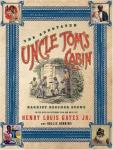
Uncle Tom's Cabin
by Harriet Beecher Stowe
Uncle Tom's Cabin; or, Life Among the Lowly is an anti-slavery novel by American author Harriet Beecher Stowe. Published in 1852, the novel "helped lay the groundwork for the Civil War", according to Will Kaufman.
Stowe, a Connecticut-born teacher at the Hartford Female Academy and an active abolitionist, featured the character of Uncle Tom, a long-suffering black slave around whom the stories of other characters revolve. The sentimental novel depicts the reality of slavery while also asserting that Christian love can overcome something as destructive as enslavement of fellow human beings.
Uncle Tom's Cabin was the best-selling novel of the 19th century and the second best-selling book of that century, following the Bible. It is credited with helping fuel the abolitionist cause in the 1850s. In the first year after it was published, 300,000 copies of the book were sold in the United States; one million copies were sold in Great Britain. In 1855, three years after it was published, it was called "the most popular novel of our day." The impact attributed to the book is great, reinforced by a story that when Abraham Lincoln met Stowe at the start of the Civil War, Lincoln declared, "So this is the little lady who started this great war." The quote is apocryphal; it did not appear in print until 1896, and it has been argued that "The long-term durability of Lincoln's greeting as an anecdote in literary studies and Stowe scholarship can perhaps be explained in part by the desire among many contemporary intellectuals ... to affirm the role of literature as an agent of social change."
The book and the plays it inspired helped popularize a number of stereotypes about black people. These include the affectionate, dark-skinned "mammy"; the "pickaninny" stereotype of black children; and the "Uncle Tom", or dutiful, long-suffering servant faithful to his white master or mistress. In recent years, the negative associations with Uncle Tom's Cabin have, to an extent, overshadowed the historical impact of the book as a "vital antislavery tool."
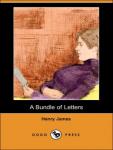
A Bundle of Letters
by Henry James
"A Bundle of Letters" is a comic short story by Henry James, originally published in The Parisian magazine in 1878, which is also when the story takes place. The story is one of James' few ventures into epistolary fiction. As he did so often, especially in the early stages of his career, James made the tale part of his international theme: his letter-writers represent a number of different countries. Although some of the characters look like well-worn stereotypes — the wolfish Frenchman, the pedantic and aggressively nationalistic German, the snobbish upper-class English siblings — James manages to endow most of them with enough twists and turns of personality to interest the reader. One character has even been taken as a sly satire on himself.
Several residents of a Paris boarding-house write letters to their friends and family back home; their primary subject is their reaction to each other. The main character is Miranda Hope, an angular but likeable Yankee Miss from Bangor, Maine who, quite bravely for a young woman of that era, is traveling in Europe alone. In her letters, she chatters to her mother about seeing the sights in Europe but doesn't like the Old World's treatment of its women, "and that is a point, you know, on which I feel very strongly." Her expressions of petulance with William Platt, who we realize must be a (so far luckless) suitor of hers back in Maine, are so offhand as to be amusing. Although she is in general the least affected and most sympathetic character in the story, her unawareness of the disdain in which most of the characters hold each other (including herself) makes her seem somewhat naive.
Meanwhile, society girl Violet Ray of New York writes to a friend that Miranda, who she sees as provincial, is "really too horrible." Another boarder, wannabe aesthete Louis Leverett (quite possibly a self-satire by James) gushes in his letter that "the great thing is to live, you know," amid much precious verbiage about the good, the true and the bee-a-u-tiful. An English boarder, Evelyn Vane, pens a scoffing note that Louis is always talking about the color of the sky, but she doubts if he's ever seen it except through a window-pane; and the German sees Leverett's "decadence" as further evidence that the English-speaking world is weak and ripe for takeover.
The Frenchman Leon Verdier almost drools in his letter about the charms of ces demoiselles among the boarders, and focuses primarily on their appearance. The rather threatening German professor is the only character both cynical and intelligent enough to realize how disdainful all the English speakers are of each other. However, he's also the least sympathetic character in the story. (James had little use for Germany and its culture.) While the other characters despise each other mostly on personal grounds, or from cultural misunderstanding, Herr Professor despises them all based on their national traits and general sub-human status (he calls the Frenchman "simian"). In a letter to his German friend, he simultaneously brags of his erudition and predicts that the weakness of these other nationalities augurs a bright future "for the deep-lunged children of the Fatherland!"
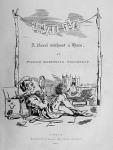
Vanity Fair: A Novel without a Hero
by William Makepeace Thackeray
Vanity Fair: A Novel without a Hero is a novel by English author William Makepeace Thackeray, first published in 1847–48, satirizing society in early 19th-century Britain. The book's title comes from John Bunyan's allegorical story The Pilgrim's Progress, first published in 1678 and still widely read at the time of Thackeray's novel. "Vanity Fair" refers to a stop along the pilgrim's progress: a never-ending fair held in a town called Vanity, which is meant to represent man's sinful attachment to worldly things.
The story opens with Miss Pinkerton's Academy for Young Ladies, where Becky Sharp and Amelia Sedley have just completed their studies and are preparing to depart for Amelia's house in Russell Square. Becky is portrayed as a strong-willed and cunning young woman determined to make her way in society, and Amelia Sedley as a good-natured, lovable though simple-minded young girl.
At Russell Square, Miss Sharp is introduced to the dashing and self-obsessed Captain George Osborne (to whom Amelia has been betrothed from a very young age) and to Amelia's brother Joseph Sedley, a clumsy and vainglorious/boastful but rich civil servant fresh from the East India Company. Hoping to marry Sedley, Becky entices him, but she fails because of warnings from Captain Osborne, Sedley's own native shyness, and his embarrassment over some foolish drunken behaviour of his that Becky had seen.
Becky Sharp says farewell to Sedley's family and enters the service of the crude and profligate baronet Sir Pitt Crawley, who has engaged her as a governess to his daughters. Her behaviour at Sir Pitt's house gains his favour, and after the premature death of his second wife, he proposes marriage to her. Then he finds she is already secretly married to his second son, Rawdon Crawley.
Sir Pitt's elder half sister, the spinster Miss Crawley, is very rich, having inherited her mother's fortune of £70,000. How she will bequeath her great wealth is a source of constant conflict between the branches of the Crawley family who vie shamelessly for her affections; initially her favourite is Sir Pitt's younger son, Captain Rawdon Crawley. For some time, Becky acts as Miss Crawley's companion, supplanting the loyal Miss Briggs in an attempt to establish herself in favour before breaking the news of her elopement with Miss Crawley's nephew. However, the misalliance so enrages Miss Crawley that she disinherits her nephew in favour of his pompous and pedantic elder brother, who also bears the name Pitt Crawley. The married couple constantly attempts to reconcile with Miss Crawley, and she relents a little, but she will only see her nephew and refuses to change her will.
While Becky Sharp is rising in the world, Amelia's father, John Sedley, is bankrupted. The Sedleys and Osbornes were once close allies, but the relationship between the two families disintegrates after the Sedleys are financially ruined, and the marriage of Amelia and George is forbidden. George ultimately decides to marry Amelia against his father's will, pressured by his friend Dobbin, and George is consequently disinherited. While these personal events take place, the Napoleonic Wars have been ramping up. George Osborne and William Dobbin are suddenly deployed to Brussels, but not before an encounter with Becky and Captain Crawley at Brighton. The holiday is interrupted by orders to march to Brussels. Already, the newly wedded Osborne is growing tired of Amelia, and he becomes increasingly attracted to Becky who encourages his advances.
At a ball in Brussels (based on the Duchess of Richmond's famous ball on the eve of the Battle of Waterloo) George gives Becky a note inviting her to run away with him. He regrets this shortly afterwards and reconciles with Amelia, who has been deeply hurt by his attentions towards her former friend. The morning after their reconciliation, he is sent to Waterloo with Captain Crawley and Dobbin, leaving Amelia distraught. Becky, on the other hand, is virtually indifferent to her husband's departure. She tries to console Amelia, but Amelia responds angrily, disgusted by Becky's flirtatious behaviour with George and her lack of concern about Captain Crawley. Becky resents this snub and a rift develops between the two women that lasts for years. Becky is not very concerned for the outcome of the war, either; should Napoleon win, she plans to become the mistress of one of his marshals. Meanwhile she makes a profit selling her carriage and horses at inflated prices to the panicked Joseph Sedly, seeking to flee the city, where the Belgian population is openly pro-Napoleonic.
Captain Crawley survives, but George dies in the battle. Amelia bears him a posthumous son, who is also named George. She returns to live in genteel poverty with her parents. Meanwhile, since the death of George, Dobbin, who is young George's godfather, gradually begins to express his love for the widowed Amelia by small kindnesses toward her and her son. She is too much in love with George's memory to return Dobbin's affections. Saddened, he goes to India for many years. Dobbin's infatuation with Amelia is a theme which unifies the novel and one which many have compared to Thackeray's unrequited love for a friend's wife (Jane Brookfield).
Meanwhile, Becky also has a son, also named after his father, but unlike Amelia, who dotes on and even spoils her child, Becky is a cold, distant mother. She continues her ascent first in post-war Paris and then in London where she is patronised by the great Marquis of Steyne, who covertly subsidises her and introduces her to London society. Her success is unstoppable despite her humble origins, and she is eventually presented at court to the Prince Regent himself.
Becky and Rawdon appear to be financially successful, but their wealth and high standard of living are mostly smoke and mirrors. Rawdon gambles heavily and earns money as a billiards shark. The book also suggests he cheats at cards. Becky accepts trinkets and money from her many admirers and sells some for cash. She also borrows heavily from the people around her and seldom pays bills. The couple lives mostly on credit, and while Rawdon seems to be too dim-witted to be aware of the effect of his borrowing on the people around him, Becky is fully aware that her heavy borrowing and her failure to pay bills bankrupts at least two innocent people: her servant, Briggs, whose life savings Becky borrows and fritters away, and her landlord Raggles, who was formerly a butler to the Crawley family and who invested his life savings in the townhouse that Becky and Rawdon rent (and fail to pay for). She also cheats innkeepers, milliners, dressmakers, grocers, and others who do business on credit. She and Rawdon obtain credit by tricking everyone around them into believing they are receiving money from others. Sometimes, Becky and Rawdon buy time from their creditors by suggesting Rawdon received money in Miss Crawley's will or are being paid a stipend by Sir Pitt. Ultimately Becky is suspected of carrying on an extramarital affair with the Marquis of Steyne, apparently encouraged by Rawdon to prostitute herself in exchange for money and promotion.
At the summit of her success, Becky's pecuniary relationship with the rich and powerful Marquis of Steyne is discovered after Rawdon is arrested for debt. Rawdon's brother's wife, Lady Jane, bails him out and Rawdon surprises Becky and Steyne in a compromising moment. Rawdon leaves his wife and through the offices of the Marquis of Steyne is made Governor of Coventry Island to get him out of the way, but Rawdon challenges the elderly marquis to a duel. Becky, having lost both husband and credibility, is warned by Steyne to leave the United Kingdom and she wanders the continent. Rawdon and Becky's son is left in the care of Pitt Crawley and Lady Jane. However, wherever Becky goes, she is followed by the shadow of the Marquis of Steyne. No sooner does she establish herself in polite society than someone turns up who knows her disreputable history and spreads rumours; Steyne himself hounds her out of Rome.
As Amelia's adored son George grows up, his grandfather relents and takes him from the impoverished Amelia, who knows the rich and bitter old man will give him a much better start in life than she or her family could ever manage. After twelve years abroad, both Joseph Sedley and Dobbin return to the UK. Dobbin professes his unchanged love to Amelia, but although Amelia is affectionate she tells him she cannot forget the memory of her dead husband. Dobbin also becomes close to young George, and his kind, firm manner is a good influence on the spoiled child.
While in England, Dobbin mediates a reconciliation between Amelia and her father-in-law. The death of Amelia's father prevents their meeting, but following Osborne's death soon after, it is revealed that he had amended his will and bequeathed young George half his large fortune and Amelia a generous annuity. The rest is divided between his daughters, Miss Osborne, and Mrs. Bullock, who begrudges Amelia and her son the decrease in her annuity.
After the death of old Mr. Osborne, Amelia, Joseph, George and Dobbin go on a trip to Germany, where they encounter the destitute Becky. She meets the young George at a card table and then enchants Jos Sedley all over again. Becky has unfortunately deteriorated as a character. She is drinking heavily, has lost her singing voice and much of her looks and spends time with card sharps and con artists. The book suggests that Becky has been involved in activities even more shady than her usual con games, but does not go into details.
Following Jos's entreaties, Amelia agrees to a reconciliation when she hears that Becky's ties with her son have been severed, much to Dobbin's disapproval. Dobbin quarrels with Amelia and finally realizes that he is wasting his love on a woman too shallow to return it. However, Becky, in a moment of conscience, shows Amelia the note that Amelia's dead husband, George, had given her, asking her to run away with him. This destroys Amelia's idealized image of George, but not before Amelia has sent a note to Dobbin professing her love.
Becky resumes her seduction of Jos and gains control over him. He eventually dies of a suspicious ailment after signing a portion of his money to Becky as life insurance. In the original illustrations, which were done by Thackeray, Becky is shown behind a curtain with a vial in her hand; the picture is labelled "Becky's second appearance in the character of Clytemnestra" (she had played Clytemnestra during charades at a party earlier in the book). Jos' death appears to have made her fortune.
By a twist of fate Rawdon dies weeks before his older brother, whose son has already died; the baronetcy descends to Rawdon's son. Had he outlived his brother by even a day he would have become Sir Rawdon Crawley and Becky would have become Lady Crawley, a title she uses anyway in later life. The reader is informed at the end of the novel that although Dobbin married Amelia, and although he always treated her with great kindness, he never fully regained the love that he once had for her. There is also a final appearance for Becky, as cocky as ever, selling trinkets at a fair in aid of various charitable causes. She is now living well again, as her son, the new baronet, has agreed to support her financially (in spite of her past neglect and indifference towards him); however, he declines any further relationship or communication.
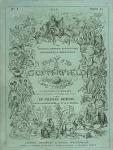
David Copperfield
by Charles Dickens
David Copperfield is the common name of the eighth novel by Charles Dickens, first published as a novel in 1850. Its full title is The Personal History, Adventures, Experience and Observation of David Copperfield the Younger of Blunderstone Rookery (Which He Never Meant to Publish on Any Account). Like most of his works, it originally appeared in serial form during the two preceding years. Many elements of the novel follow events in Dickens' own life, and it is probably the most autobiographical of his novels. In the preface to the 1867 edition, Dickens wrote, "...like many fond parents, I have in my heart of hearts a favourite child. And his name is David Copperfield."
The story traces the life of David Copperfield from childhood to maturity. David was born in Blunderstone, Suffolk, near Great Yarmouth, Norfolk, England, in 1820, six months after the death of his father. David spends his early years with his mother and their housekeeper, Peggotty. When he is seven years old, his mother re-marries Edward Murdstone. David is given good reason to dislike his stepfather and has similar feelings for Murdstone's sister Jane, who moves into the house soon afterwards. Murdstone thrashes David for falling behind in his studies. Following one of these thrashings, David bites him and soon afterwards is sent away to a boarding school, Salem House, with a ruthless headmaster, Mr. Creakle. There he befriends James Steerforth and Tommy Traddles.
David returns home for the holidays to learn that his mother has given birth to a baby boy. Shortly after David returns to Salem House, his mother and her baby die and David returns home immediately. Peggotty marries a man named Mr Barkis. Murdstone sends David to work in a wine merchant in London, of which Murdstone is a joint owner.[4] Copperfield's landlord, Wilkins Micawber, is sent to debtors' prison (the King's Bench Prison) and remains there for several months before being released and moving to Plymouth. No one remains to care for David in London, so he decides to run away.
He walks from London to Dover, where he finds his only relative, his unmarried, eccentric aunt Betsey Trotwood. She agrees to raise him, despite Murdstone's attempt to regain custody of David. David's aunt renames him "Trotwood Copperfield" and addresses him as "Trot", and it becomes one of several names to which David answers in the course of the novel.
As David grows to adulthood, a variety of characters enter, leave, and re-enter his life. These include Peggotty and her family, including her orphaned niece "Little Em'ly", who moves in with them and charms the young David. David's romantic but self-serving school friend, Steerforth, seduces and dishonours Little Em'ly, precipitating the novel's greatest tragedy, and his landlord's daughter Agnes Wickfield, becomes his confidante. The novel's two most familiar characters are David's sometime mentor, the debt-ridden Micawber, and the devious and fraudulent clerk, Uriah Heep, whose misdeeds are eventually revealed with Micawber's assistance. Micawber is painted sympathetically even as the narrator deplores his financial ineptitude. Micawber, like Dickens' own father, is briefly imprisoned for insolvency.
The major characters eventually get some measure of what they deserve, and few narrative threads are left hanging. Peggotty's brother Dan safely transports Emily to a new life in Australia, accompanied by the widowed Mrs. Gummidge and the Micawbers. All eventually find security and happiness in their adopted country. David marries the beautiful but naïve Dora Spenlow, who dies after failing to recover from a miscarriage early in their marriage. David then searches his soul and marries the sensible Agnes, who had always loved him and with whom he finds true happiness. David and Agnes then have at least four children, including a daughter named after his aunt Betsey Trotwood.
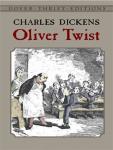
Oliver Twist
by Charles Dickens
Oliver Twist, subtitled The Parish Boy's Progress, is the second novel by English author Charles Dickens, published by Richard Bentley in 1838. The story is about an orphan, Oliver Twist, who endures a miserable existence in a workhouse and then is placed with an undertaker. He escapes and travels to London where he meets the Artful Dodger, leader of a gang of juvenile pickpockets. Naively unaware of their unlawful activities, Oliver is led to the lair of their elderly criminal trainer Fagin.
Oliver Twist is notable for Dickens' unromantic portrayal of criminals and their sordid lives. The book exposed the cruel treatment of many a waif-child in London, which increased international concern in what is sometimes known as "The Great London Waif Crisis": the large number of orphans in London in the Dickens era. The book's subtitle, The Parish Boy's Progress, alludes to Bunyan's The Pilgrim's Progress and also to a pair of popular 18th-century caricature series by William Hogarth, A Rake's Progress and A Harlot's Progress.
An early example of the social novel, the book calls the public's attention to various contemporary evils, including child labour, the recruitment of children as criminals, and the presence of street children. Dickens mocks the hypocrisies of his time by surrounding the novel's serious themes with sarcasm and dark humour. The novel may have been inspired by the story of Robert Blincoe, an orphan whose account of hardships as a child labourer in a cotton mill was widely read in the 1830s. It is likely that Dickens's own early youth as a child labourer contributed to the story's development.
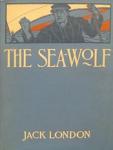
The Sea-Wolf
by Jack London
The Sea-Wolf is a 1904 psychological adventure novel by American novelist Jack London about a literary critic, survivor of an ocean collision, who comes under the dominance of Wolf Larsen, the powerful and amoral sea captain who rescues him. Its first printing of forty thousand copies were immediately sold out before publication on the strength of London's previous The Call of the Wild. Ambrose Bierce wrote, "The great thing—and it is among the greatest of things—is that tremendous creation, Wolf Larsen... the hewing out and setting up of such a figure is enough for a man to do in one lifetime... The love element, with its absurd suppressions, and impossible proprieties, is awful."
Like The Call of the Wild, The Sea Wolf tells the story of a soft, domesticated protagonist, in this novel's case an intellectual man named Humphrey van Weyden, forced to become tough and self-reliant by exposure to cruelty and brutality. The story starts with him aboard a San Francisco ferry, called Martinez, which collides with another ship in the fog and sinks. He is set adrift in the Bay, eventually being picked up by Wolf Larsen. Larsen is the captain of a seal-hunting schooner, the Ghost. Brutal and cynical, yet also highly intelligent and intellectual (though highly biased in his opinions, as he was self-taught), he rules over his ship and terrorizes the crew with the aid of his exceptionally great physical strength. Van Weyden adequately describes him as an individualist, hedonist, and materialist. Larsen does not believe in the immortality of the soul, he finds no meaning in his life save for survival and pleasure and has come to despise all human life and deny its value. Being interested in someone capable of intellectual disputes, he somewhat takes care of Van Weyden, whom he calls 'Hump', while forcing him to become a cabin boy, do menial work, and learn to fight to protect himself from a brutal crew.
A key event in the story is an attempted mutiny against Wolf Larsen by several members of the crew. The organizers of the mutiny are Leach and Johnson. Johnson had previously been beaten severely by Larsen, and Leach had been punched earlier while being forced to become a boat-puller, motivating the two. The first attempt is by sending Larsen overboard; however, he manages to climb back onto the ship. Searching for his assailant, he ventures into the sleeping quarters, located beneath the main deck, the only exit being a ladder. Several, at least seven men, take part in the mutiny and attack Larsen. Larsen however, demonstrating his inhuman endurance, strength, and conviction, manages to fight his way through the crew, climb the ladder with several men hanging off him, and escape relatively unharmed. Van Weyden is promoted as mate, for the original mate had been murdered. Larsen later gets his vengeance by torturing his crew, and constantly claiming that he is going to murder Leach and Johnson at his earliest convenience, being the hunting season is done, as he can't afford to lose any crew. He later allows them to be lost to the sea when they attempt to flee on a hunting boat.
During this section, the Ghost picks up another set of castaways, including a poet named Maud Brewster. Miss Brewster and van Weyden had known each other previously—but only as writers. Both Wolf Larsen and van Weyden immediately feel attraction to her, due to her intelligence and "female delicacy". Van Weyden sees her as his first true love. He strives to protect her from the crew, the horrors of the sea, and Wolf Larsen. As this happens, Wolf Larsen meets his brother Death Larsen, a bitter opponent of his. Wolf kidnapped several of Death's crew and forced them into servitude to fill his own ranks, lost previously during a storm. During one of Wolf Larsen's intense headaches, which render him near immobile, van Weyden steals a boat and flees with Miss Brewster.
The two eventually land on an uninhabited island, heavily populated with seals. They hunt, build shelter and a fire, and survive for several days, using the strength they gained while on the Ghost. The Ghost eventually crashes on the island, with Wolf Larsen the only crew member. As a revenge, Death Larsen had tracked his brother, bribed his crew, destroyed his sails, and set Larsen adrift at sea. It is purely by chance that van Weyden and Miss Brewster meet Larsen again.
Van Weyden obtains all of the weapons including firearms left on the ship, but he cannot bear to murder Larsen, who does not threaten him. Van Weyden and Miss Brewster decide they can repair the ship, but Larsen, who intends to die on the island and take them with him, sabotages any repairs they make. After a headache, Larsen is rendered blind. He feigns paralysis and attempts to murder van Weyden when he draws within arm's reach but just then is hit with a stroke that leaves him blind and the right side of his body paralyzed. His condition only worsens; he loses usage of his remaining arm, leg, and voice. Miss Brewster and van Weyden, unable to bring themselves to leave him to rot, care for him. Despite this kindness, he continues his resistance, setting fire to the bunk's mattress above him.
Van Weyden finishes repairing the Ghost, and he and Miss Brewster set sail. During a violent storm, Wolf Larsen dies. They give Larsen a burial at sea, an act mirroring an incident van Weyden witnessed when he was first rescued. The story ends with the two being rescued by an American revenue cutter.

Vineland
by Thomas Pynchon
Vineland is a 1990 novel by Thomas Pynchon, a postmodern fiction set in California, United States in 1984, the year of Ronald Reagan's reelection. Through flashbacks by its characters, who have lived the sixties in their youth, the story accounts for the free spirit of rebellion of that decade, and describes the traits of the fascistic Nixonian repression and its War on drugs that clashed with it; and it articulates the slide and transformation that occurred in U.S. society from the 1960s to the 1980s.
The story is set in California, United States, in 1984, the year of Ronald Reagan's reelection. After a scene in which former hippie Zoyd Wheeler dives through a window, something he is required to do yearly in order to keep receiving mental disability checks, the action of the novel opens with the resurfacing of D.E.A. agent Brock Vond, who (through a platoon of agents) forces Zoyd and his 14-year-old daughter Prairie out of their house. They hide from Brock, and from Hector Zuñiga (a drug-enforcement federale from Zoyd's past, who Zoyd suspects is in cahoots with Brock) with old friends of Zoyd's, who recount to the mystified Prairie the story of Brock's motivation for what he has done.
This hinges heavily on Frenesi Gates, Prairie's mother, whom she has never met. In the '60s, during the height of the hippie era, the fictive College of the Surf seceded from the United States and became its own nation of hippies and dope smokers, called the People's Republic of Rock and Roll (PR³). Brock Vond, working for the D.E.A., intends to bring down PR³, and finds a willing accomplice in Frenesi. She is a member of 24fps, a militant film collective (other members of which are the people telling Prairie their story in the present), that seeks to document the "fascists' " transgressions against freedom and the hippie ideals. Frenesi is uncontrollably attracted to Brock and the sex he provides, and ends up working as a double agent to bring about the killing of the de facto leader of PR³, Weed Atman (a mathematics professor who accidentally became the subject of a cult of personality).
Her betrayal caused Frenesi to need to flee, and she has been living in witness protection with Brock's help up until the present day. Now she has disappeared. The membership of 24fps, Brock Vond, and Hector Zuñiga are all searching her out, for their various motives. The book's theme of the ubiquity of television (or the Tube) comes to a head when Hector, a Tube addict who has actually not been working with Brock, finds funding to create his pet project of a movie telling the story of the depraved sixties, with Frenesi Gates as the star, and the pomp and circumstance surrounding this big-money deal create a net of safety that allows Frenesi to come out of hiding. 24fps finds her and achieves their goal of allowing Prairie to meet her, at an enormous reunion of Frenesi's family. Weed Atman is also present at the reunion as one of many Thanatoids in the book—people who are in a state that is "like death, but different."
Brock, nearly omnipotent with D.E.A. funds, finds Prairie with a surveillance helicopter, and tries to snatch her up in order to get to Frenesi, but while he is hovering above her on a ladder, the government abruptly cuts all his funding due to a loss of interest in funding the war on drugs because people have begun playing along willingly with the antidrug ideal, and his helicopter pilot flies him away. Later he tries to come after Prairie and Frenesi again, but ends up stranded on a country road, where vengeful mechanics, acquaintances of 24fps, take him to cross the river of death and become a Thanatoid. The family reunion allows everyone to tie up all their loose ends, and the book ends with Prairie looking into the beginning of a life no longer controlled by the fall-out of the past.
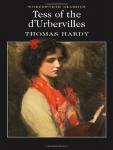
Tess of the d'Urbervilles
by Thomas Hardy
Tess of the d'Urbervilles: A Pure Woman Faithfully Presented, also known as Tess of the d'Urbervilles: A Pure Woman, Tess of the d'Urbervilles or just Tess, is a novel by Thomas Hardy, first published in 1891. It initially appeared in a censored and serialised version, published by the British illustrated newspaper, The Graphic. Though now considered an important work of English literature, the book received mixed reviews when it first appeared, in part because it challenged the sexual mores of Hardy's day. The original manuscript is on display at the British Library,showing that it was originally titled "Daughter of the d'Urbervilles."
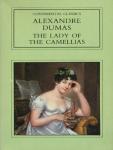
The Lady of the Camellias
by Alexandre Dumas
The Lady of the Camellias (French: La Dame aux camélias) is a novel by Alexandre Dumas, fils, first published in 1848, and subsequently adapted for the stage. The Lady of the Camellias premiered at the Théâtre du Vaudeville in Paris, France on February 2, 1852. The play was an instant success, and Giuseppe Verdi immediately set about putting the story to music. His work became the 1853 opera La Traviata, with the female protagonist, Marguerite Gautier, renamed Violetta Valéry.
In the English-speaking world, The Lady of the Camellias became known as Camille and 16 versions have been performed at Broadway theatres alone. The title character is Marguerite Gautier, who is based on Marie Duplessis, the real-life lover of author Dumas, fils.
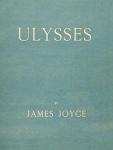
Ulysses
by James Joyce
Ulysses is a novel by the Irish writer James Joyce. It was first serialised in parts in the American journal The Little Review from March 1918 to December 1920, and then published in its entirety by Sylvia Beach in February 1922, in Paris. Considered one of the most important works of Modernist literature, it has been called "a demonstration and summation of the entire movement". "Before Joyce, no writer of fiction had so foregrounded the process of thinking."
Ulysses chronicles the passage of Leopold Bloom through Dublin during an ordinary day, 16 June 1904 (the day of Joyce's first date with his future wife, Nora Barnacle). Ulysses is the Latinised name of Odysseus, the hero of Homer's poem Odyssey, and the novel establishes a series of parallels between its characters and events and those of the poem (e.g., the correspondence of Leopold Bloom to Odysseus, Molly Bloom to Penelope, and Stephen Dedalus to Telemachus).
Ulysses is approximately 265,000 words in length, uses a lexicon of 30,030 words (including proper names, plurals and various verb tenses), and is divided into eighteen episodes. Since publication, the book has attracted controversy and scrutiny, ranging from early obscenity trials to protracted textual "Joyce Wars." Ulysses' stream-of-consciousness technique, careful structuring, and experimental prose—full of puns, parodies, and allusions, as well as its rich characterisations and broad humour, made the book a highly regarded novel in the Modernist pantheon. In 1998, the Modern Library ranked Ulysses first on its list of the 100 best English-language novels of the 20th century. Joyce fans worldwide now celebrate 16 June as Bloomsday.
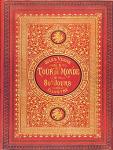
Around the World in Eighty Days
by Jules Verne
Around the World in Eighty Days is a classic adventure novel by the French writer Jules Verne, published in 1873. In the story, Phileas Fogg of London and his newly employed French valet Passepartout attempt to circumnavigate the world in 80 days on a £20,000 wager (roughly £1,324,289 today) set by his friends at the Reform Club. It is one of Verne's most acclaimed works.
The story starts in London on Tuesday, October 1, 1872. Fogg is a rich English gentleman and bachelor living in solitude at Number 7 Savile Row, Burlington Gardens. Despite his wealth, which is £40,000 (roughly £2,650,000 today), Fogg, whose countenance is described as "repose in action", lives a modest life with habits carried out with mathematical precision. Very little can be said about his social life other than that he is a member of the Reform Club. Having dismissed his former valet, James Foster, for bringing him shaving water at 84 °F (29 °C) instead of 86 °F (30 °C), Fogg hires a Frenchman by the name of Jean Passepartout, who is about 30 years old, as a replacement.
Later on that day, in the Reform Club, Fogg gets involved in an argument over an article in The Daily Telegraph, stating that with the opening of a new railway section in India, it is now possible to travel around the world in 80 days. He accepts a wager for £20,000 (roughly £1,320,000 today) from his fellow club members, which he will receive if he makes it around the world in 80 days. Accompanied by Passepartout, he leaves London by train at 8:45 P.M. on Wednesday, October 2, 1872, and thus is due back at the Reform Club at the same time 80 days later, Saturday, December 21, 1872.
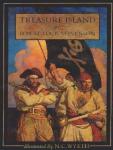
Treasure Island
by Robert Louis Stevenson
Treasure Island is an adventure novel by Scottish author Robert Louis Stevenson, narrating a tale of "buccaneers and buried gold". First published as a book on May 23, 1883, it was originally serialized in the children's magazine Young Folks between 1881–82 under the title Treasure Island or, the mutiny of the Hispaniola with Stevenson adopting the pseudonym Captain George North.
Traditionally considered a coming-of-age story, Treasure Island is an adventure tale known for its atmosphere, characters and action, and also as a wry commentary on the ambiguity of morality — as seen in Long John Silver — unusual for children's literature now and then. It is one of the most frequently dramatized of all novels. The influence of Treasure Island on popular perceptions of pirates is enormous, including treasure maps marked with an "X", schooners, the Black Spot, tropical islands, and one-legged seamen carrying parrots on their shoulders.